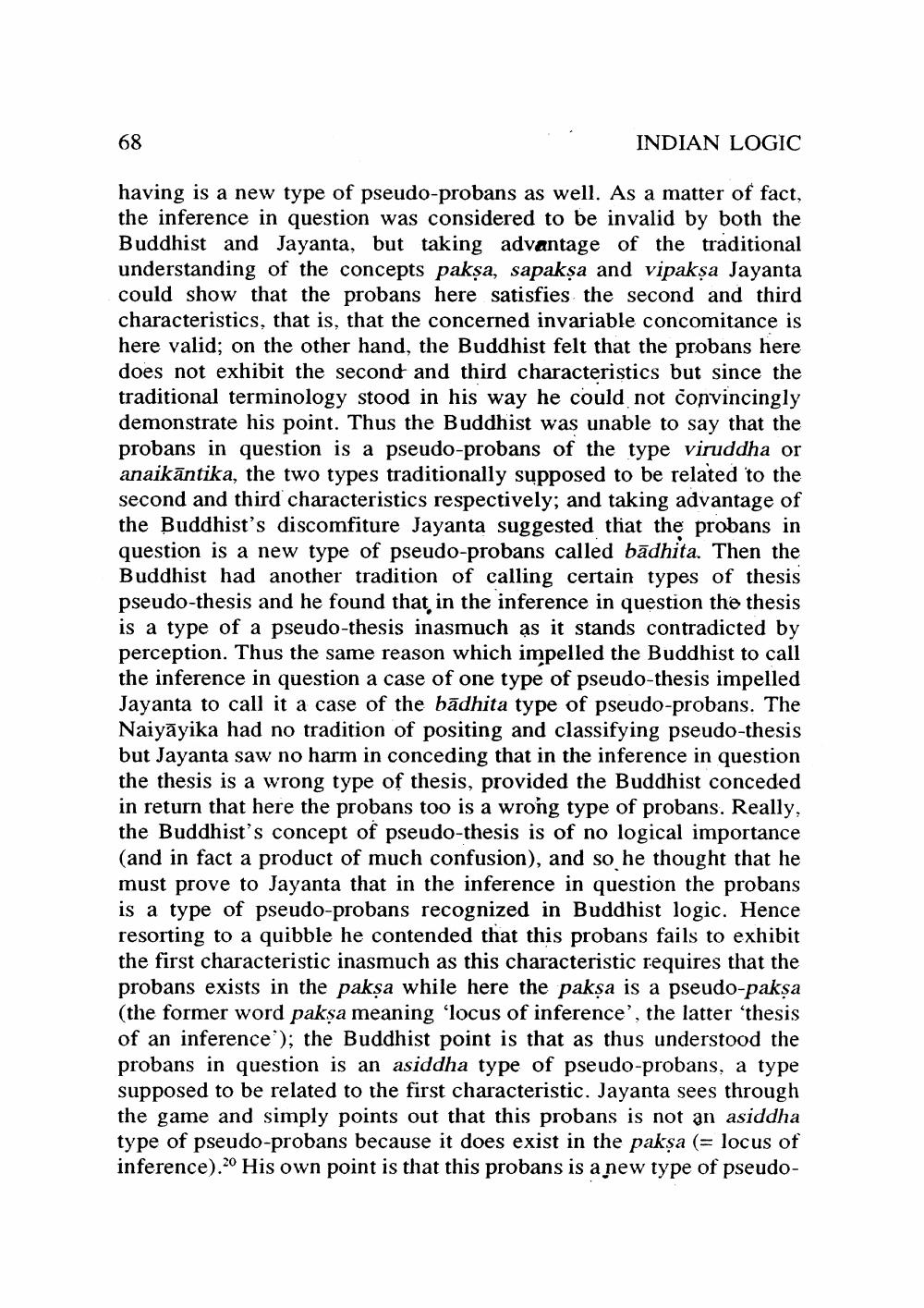________________
68
INDIAN LOGIC
having is a new type of pseudo-probans as well. As a matter of fact, the inference in question was considered to be invalid by both the Buddhist and Jayanta, but taking advantage of the traditional understanding of the concepts pakşa, sapaksa and vipaksa Jayanta could show that the probans here satisfies the second and third characteristics, that is, that the concerned invariable concomitance is here valid; on the other hand, the Buddhist felt that the probans here does not exhibit the second and third characteristics but since the traditional terminology stood in his way he could not convincingly demonstrate his point. Thus the Buddhist was unable to say that the probans in question is a pseudo-probans of the type viruddha or anaikāntika, the two types traditionally supposed to be related to the second and third characteristics respectively; and taking advantage of the Buddhist's discomfiture Jayanta suggested that the probans in question is a new type of pseudo-probans called bādhita. Then the Buddhist had another tradition of calling certain types of thesis pseudo-thesis and he found that in the inference in question the thesis is a type of a pseudo-thesis inasmuch as it stands contradicted by perception. Thus the same reason which impelled the Buddhist to call the inference in question a case of one type of pseudo-thesis impelled Jayanta to call it a case of the bādhita type of pseudo-probans. The Naiyāyika had no tradition of positing and classifying pseudo-thesis but Jayanta saw no harm in conceding that in the inference in question the thesis is a wrong type of thesis, provided the Buddhist conceded in return that here the probans too is a wrong type of probans. Really, the Buddhist's concept of pseudo-thesis is of no logical importance (and in fact a product of much confusion), and so he thought that he must prove to Jayanta that in the inference in question the probans is a type of pseudo-probans recognized in Buddhist logic. Hence resorting to a quibble he contended that this probans fails to exhibit the first characteristic inasmuch as this characteristic requires that the probans exists in the pakṣa while here the paksa is a pseudo-paksa (the former word paksa meaning 'locus of inference, the latter 'thesis of an inference); the Buddhist point is that as thus understood the probans in question is an asiddha type of pseudo-probans, a type supposed to be related to the first characteristic. Jayanta sees through the game and simply points out that this probans is not an asiddha type of pseudo-probans because it does exist in the paksa (= locus of inference).20 His own point is that this probans is a new type of pseudo




